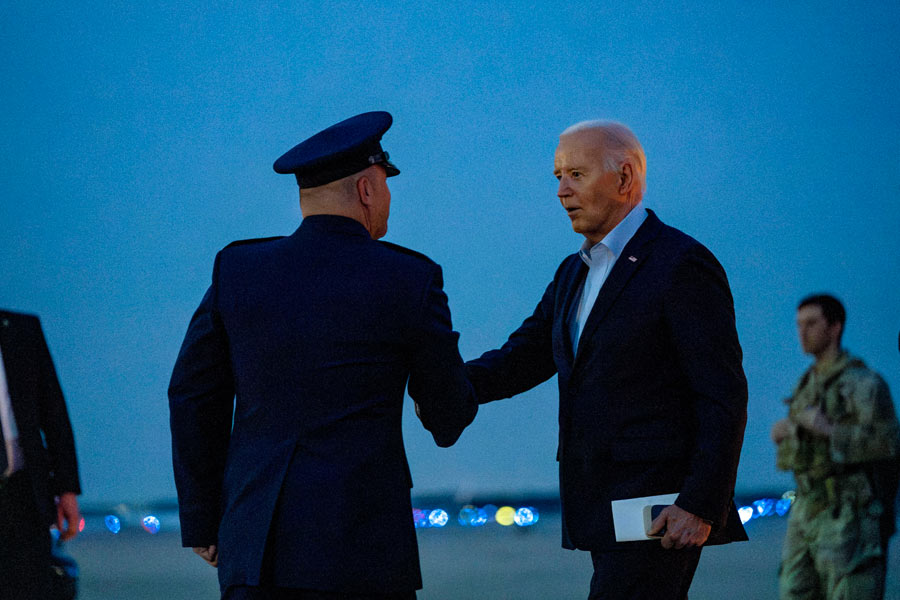Just hours after US fighter jets bombed facilities used by Iran’s Revolutionary Guard and its proxies in Syria early on Friday, the proxies fired back — launching an attack drone at US forces in western Iraq.
US air defences shot down the drone a few miles from Ain al-Asad air base, causing no injuries or damage on the ground, US officials said Friday. Pentagon officials also said rockets were fired into northern Syria on Friday but landed far from US troops.
Pentagon officials have attributed the attacks to Iran-backed militias.
But the tit-for-tat raised questions about whether the airstrikes that were carried out after a flurry of rocket and drone attacks against US forces in Iraq and Syria could achieve one of their major goals: to deter further attacks.
“The US does not seek conflict and has no intention nor desire to engage in further hostilities, but these Iranian-backed attacks against US forces are unacceptable and must stop,” defence secretary Lloyd Austin said in a statement after what he described as “self-defence” strikes.
The airstrikes conducted by two Air Force F-16s and one F-15 were calibrated to send a strong message to Iran but not so strong as to escalate the hostilities, US officials said. The targets were arms and ammunition storage buildings that supplied the Iran-backed militias involved in the recent attacks against Americans, Pentagon officials said.
“This was our way of saying ‘Cut it out,’ but no more than that,” said Charles Lister of the Middle East Institute in Washington.
Since Hamas’ surprise attack against Israel on October 7, US President Joe Biden and his aides have sought to prevent the war between Israel and Hamas from spilling over into a regional conflict with Iran and its proxies in Lebanon, Syria and Iraq. The Pentagon has rushed two aircraft carriers and dozens of extra warplanes to the region.
But with the near-daily attacks against US forces over the past 10 days — the Pentagon’s tally climbed to at least 20 by late Friday — pressure had been mounting for a military response.










